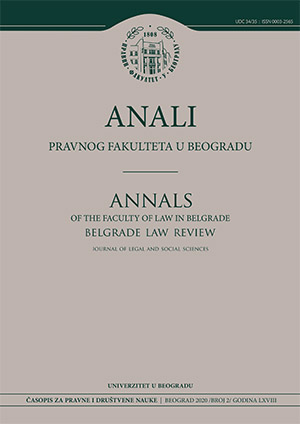ПРИВИЛЕГОВАНИ РОК ЗАСТАРЕЛОСТИ: НЕУЈЕДНАЧЕНА ПРАКСА ВРХОВНОГ (КАСАЦИОНОГ) СУДА И СТАВ УСТАВНОГ СУДА
EXTENDED STATUTE OF LIMITATIONS: DIVERGENT JURISPRUDENCE OF THE SUPREME COURT (OF CASSATION) AND THE OPINION OF THE CONSTITUTIONAL COURT
Author(s): Marija DraškićSubject(s): Law, Constitution, Jurisprudence, Constitutional Law, Human Rights and Humanitarian Law
Published by: Правни факултет Универзитета у Београду
Keywords: Constitutional Court.; Supreme Court (of Cassation); Constitutional complaint; Human rights; Extended statute of limitations;
Summary/Abstract: Although the difference in the competences of the Constitutional Court’s and courts’ of general jurisdiction can be observed and explained on the normative and even on the practical level, a heated debate took place in Serbia on whether the Constitutional Court could control judicial decisions at all. This paper seeks to outline one Constitutional Court decision that illustrates the reasons why the Constitutional Court obtained competence for the adjudication of constitutional appeals and therefore entered the area of direct protection of constitutionally guaranteed human rights. In the case that is the subject of this comment, the Constitutional Court acted to harmonize inconsistent case law in the case of the dispute as to whether the prolonged prescription period—in case of damage caused by a criminal offence—runs solely against a wrongdoer, or also against a person liable for damage caused by the wrongdoer, protecting the complainants’ right to a fair trial.
Journal: Анали Правног факултета у Београду
- Issue Year: 68/2020
- Issue No: 2
- Page Range: 200-216
- Page Count: 17
- Language: Serbian

